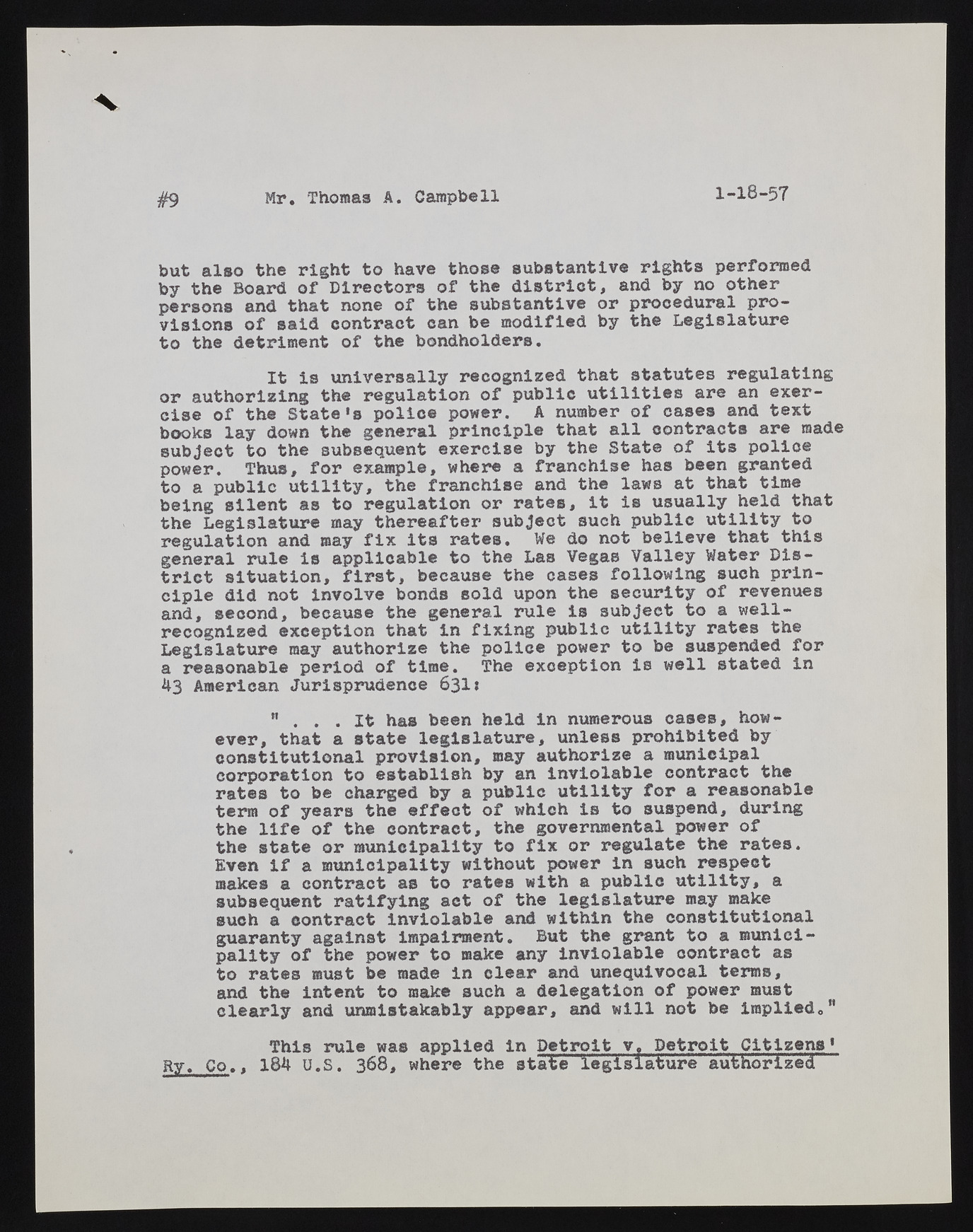Copyright & Fair-use Agreement
UNLV Special Collections provides copies of materials to facilitate private study, scholarship, or research. Material not in the public domain may be used according to fair use of copyrighted materials as defined by copyright law. Please cite us.
Please note that UNLV may not own the copyright to these materials and cannot provide permission to publish or distribute materials when UNLV is not the copyright holder. The user is solely responsible for determining the copyright status of materials and obtaining permission to use material from the copyright holder and for determining whether any permissions relating to any other rights are necessary for the intended use, and for obtaining all required permissions beyond that allowed by fair use.
Read more about our reproduction and use policy.
I agree.Information
Digital ID
Permalink
Details
More Info
Rights
Digital Provenance
Publisher
Transcription
#9 Mr. Thomas A. Campbell 1-18-57 but also the right to have those substantive rights performed by the Board of Directors of the district, and by no other persons and that none of the substantive or procedural provisions of said contract can be modified by the Legislature to the detriment of the bondholders. It is universally recognized that statutes regulating or authorizing the regulation of public utilities are an exercise of the State1 s police power. A number of cases and text books lay down the general principle that all contracts are made subject to the subsequent exercise by the State of its police power. Thus, for example, where a franchise has been granted to a public utility, the franchise and the laws at that time being silent as to regulation or rates, it is usually held that the Legislature may thereafter subject such public utility to regulation and may fix its rates. We do not believe that this general rule is applicable to the Las Vegas Valley Water District situation, first, because the cases following such principle did not involve bonds sold upon the security of revenues and, second, because the general rule is subject to a well-recognized exception that in fixing public utility rates the Legislature may authorize the police power to be suspended for a reasonable period of time. The exception is well stated in 43 American Jurisprudence 63I1 ” . . . It has been held in numerous cases, however, that a state legislature, unless prohibited by constitutional provision, may authorize a municipal corporation to establish by an inviolable contract the rates to be charged by a public utility for a reasonable term of years the effect of which is to suspend, during the life of the contract, the governmental power of the state or municipality to fix or regulate the rates. Even if a municipality without power in such respect makes a contract as to rates with a public utility, a subsequent ratifying act of the legislature may make such a contract inviolable and within the constitutional guaranty against impairment. But the grant to a municipality of the power to make any inviolable contract as to rates must be made in clear and unequivocal terms, and the intent to make such a delegation of power must clearly and unmistakably appear, and will not be Implied." This rule was applied in Detroit v. Detroit Citizens1 Ry. C o ., 184 u.S. 368, where the staie legislature authorized

